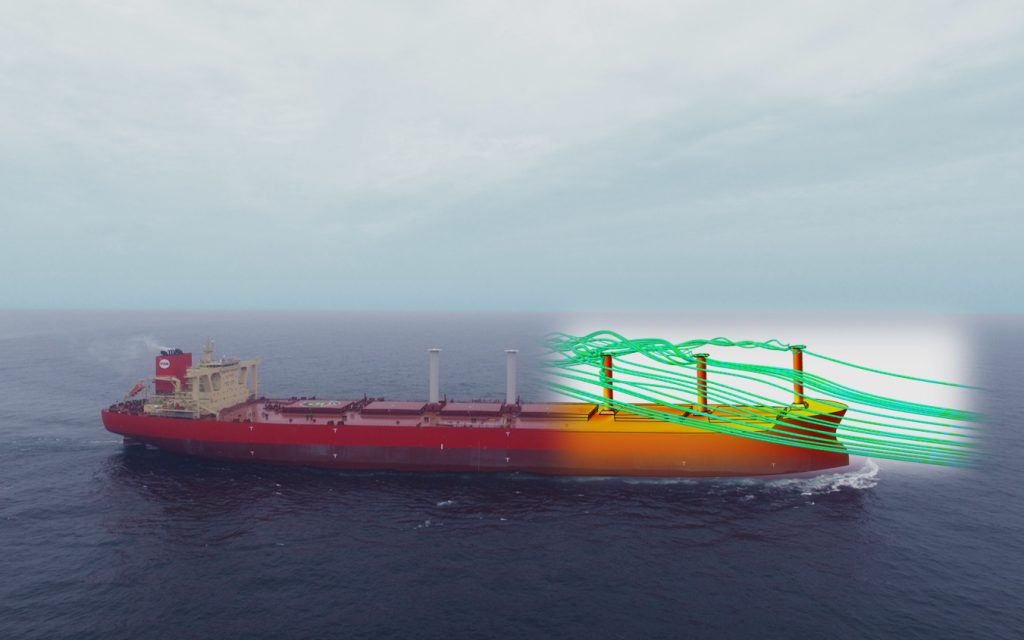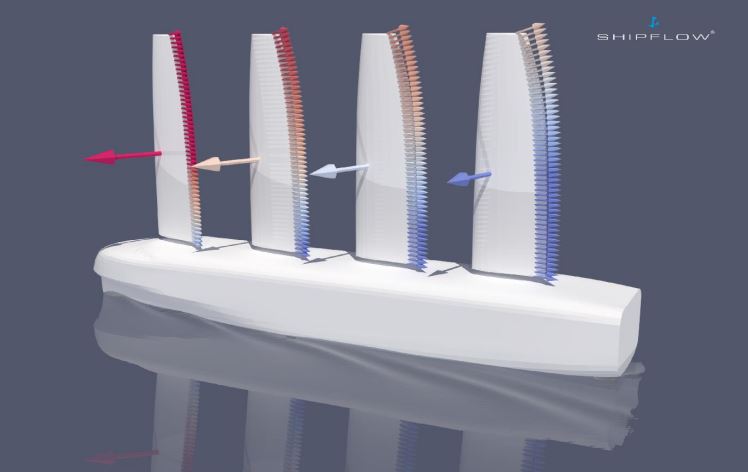
in the world. SSPA was involved from the very start.
Helping an industry to set sail.
In response to rapidly growing demand, SSPA expands its services in maritime wind propulsion and
introduces the new business segment “Wind-Powered Ships”. A special team of consultants, experts,
and naval architects will support the maritime industry with independent guidance and assessments
of wind-powered ships.

Reducing fuel consumption
High fuel prices and the International Maritime Organization’s policy framework on the reduction of
GHG emissions continue to force ship owners and operators to reduce fuel consumption. Various
saving measures, actions, and technologies are being investigated around the world. Among them
one that has successfully been used for millennia: Wind.
First-hand knowledge
Modern wind propulsion technologies have little in common with the canvas sails of old and range
from “Flettner-rotors” over kites and suction sails to rigid sails that resemble vertical aircraft wings.
All of these systems are major investments and the decision to install them requires careful
consideration of many complex questions. Based on first-hand knowledge and full-scale data, SSPA
has developed the methods and tools required to support the industry.
“SSPA was a key player in investigating different wind propulsion systems; their
advantages, disadvantages and expected savings leading up to our decision to invest.
̶ Rodrigo Bermelho (Shipping Technical Manager at Vale) ̶
Comprehensive range of services
With an extensive product portfolio, we accompany wind propulsion projects along the entire value
chain:
• Business case and decision support for wind propulsion, early stage EEXI and CII calculations
• Independent 3rd party evaluations of fuel saving potential from wind propulsion
• Voyage and routing simulations
• Sea trials and performance monitoring of wind-powered ships
• Logistic studies
• Technical, operational, and financial risk assessments
• Seakeeping and manoeuvring simulations and testing
• Operational aspects and crew training





